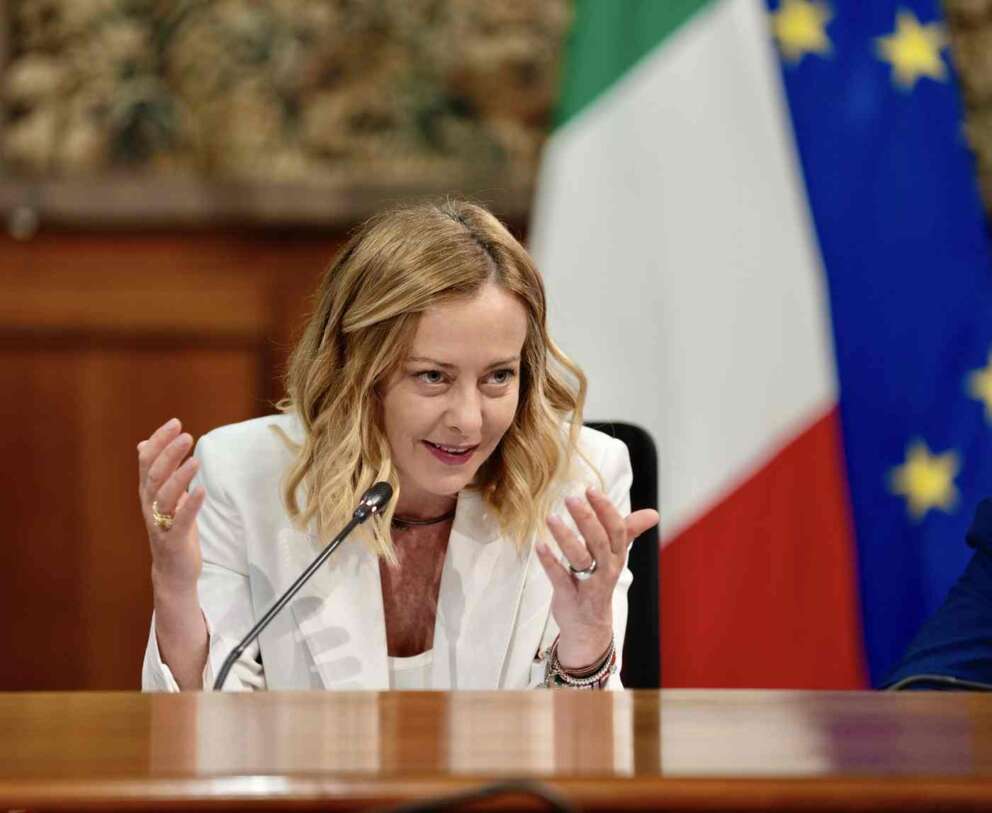Ukraine, Europe rejects Meloni: no Putin-Zelensky negotiations in the Vatican

The Prime Minister remains isolated
The idea put forward by the Prime Minister to have Putin and Zelensky sit at the Pope's table leaves Europe cold, which approves new anti-Russian sanctions and criticizes Trump

Zelensky speaks on the phone with Giorgia Meloni and the topic, they say from Palazzo Chigi, is the negotiations that, according to Trump 's statements after the long phone call on Monday with Putin, are about to begin. Almost at the same time, Zelensky himself had spoken with the president of the European Commission von der Leyen and it had been a very different tune. He had in fact thanked the president for the new sanctions against Russia, package number 17, and discussed the next one, package 18, which European leaders and the Ukrainian president himself want to be much tougher. In words, in this case too, the objective is the negotiation: " It is time to exert maximum pressure on Moscow to reach a truce ," explains von der Leyen. But the distance between the two positions, the American and the European, could not be greater.
It was understood, after all, already on Monday evening, after the telephone conversation between Trump and the main European leaders, this time, unlike in the case of the call from Tirana, Giorgia Meloni was also present. The Italian Prime Minister was the only one to comment enthusiastically on the American president's report, particularly satisfied because the idea of accepting the offer of hospitality in the Vatican for the talks, advanced by Pope Leo, had greatly pleased the tenant of the White House. Von der Leyen , while thanking Trump, had been much more cautious. German Chancellor Merz, on the other hand, had interpreted the conversation between the Russian and the American in a sense diametrically opposed to the certainly very rosy one of the tycoon: " Since the conversation did not lead to a truce, the European leaders are thinking about new sanctions".
It seemed like a serious divergence but the rumors that arrived yesterday say instead that there is an abyss between the position of the USA and that of Europe. The Europeans were reportedly shocked and very annoyed by the American president's compliance with the tsar. Trump, in turn, has reportedly asked in vain to avoid new sanctions. It is in fact obvious that, with an attempt to start negotiations underway, the threat of new sanctions is not the best of viaticums and even more so because Putin claims to have considered the summit of European leaders in Kiev on May 9th as " an act of war" . On paper, the difference between Trump and the Europeans is that the former believes in Putin's desire for peace and therefore in his willingness to seek an agreement while the latter believe that the Russian president is only buying time to advance further into Ukrainian territory. There is indeed a difference in this crucial evaluation.
The problem is that there is much more and it is that more that risks getting Giorgia Meloni into trouble again. The leaders of the main European countries do not trust Trump and suspect that he is, knowingly or not, playing Putin's game. They then feel cornered by the brutality of an American president who does not hide the fact that he considers them more or less superfluous and who has no intention of leaving them real power in the attempt to mediate with Putin today and in the division of global spheres of influence tomorrow. Consequently, both because they aim to prevent what they see as a substantial surrender of Ukraine and the West, and to avoid being cut off from the great games, they are in fact rowing against and obstructing as best they can the path devised by the American.
The Italian Prime Minister risked ending up on the black list of reprobate countries, as has been evident in the last two weeks, precisely because she was not aligned enough with Ukraine even at the cost of going against the tycoon and because in fact if not in words she was lukewarm in the arms race. She returned in extremis to that European leading group from which she had been effectively expelled only after returning to an alignment without distinction alongside not only Ukraine but the European muscular line. Now, however, the American and European navigation, which for a while had seemed parallel again, are going in the opposite direction again and precisely where Europe is most intransigent: on the chapter of the war in Ukraine. Thus, having just emerged from a big mess, Meloni risks finding herself entangled in it again and on the same ground: war.
l'Unità





